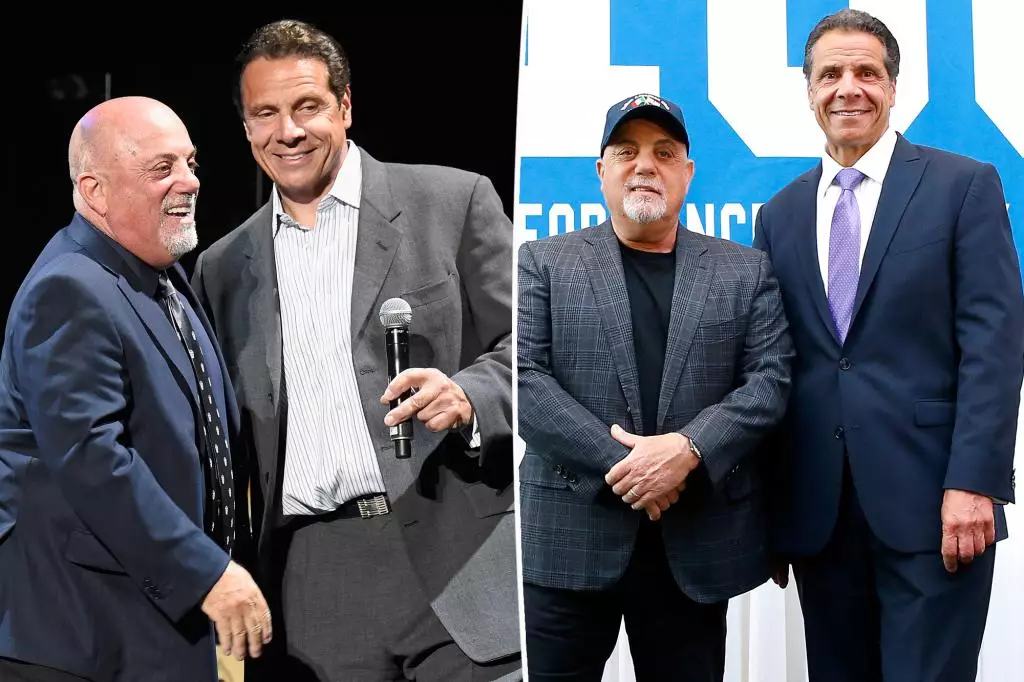In the intricate world of politics, celebrity endorsements and financial contributions can wield significant influence, shaping the fates of candidates and their campaigns. Recently, legendary musician Billy Joel made headlines by donating $50,000 to a super PAC supporting Andrew Cuomo’s mayoral candidacy. This sizable contribution highlights not only Joel’s personal beliefs but also reflects a complex relationship between pop culture and politics.
The excitement surrounding Joel’s donation on April 2 comes from the recognition of him as a fixture in New York’s cultural landscape. A man known for his timeless hits, Joel’s actions resonate deeper than just a financial gesture; they signify a commitment to community and support for a candidate he believes in. As a celebrity whose music has intertwined with the pulse of New York City for decades, his financial backing could convey stability, loyalty, and perhaps even a nostalgia for Cuomo’s prior tenure in office.
Historical Connections and Political Nostalgia
Billy Joel’s ties to Andrew Cuomo date back to previous elections that demonstrate a history of mutual support. Hosting a dinner for Cuomo in 2018 near his Centre Island estate exemplifies how celebrity status can help rally support for political figures. Furthermore, Joel’s role as the godfather to one of Cuomo’s daughters adds a personal dimension to their relationship, blurring the lines between personal friendship and political alliance. This connection underscores the fusion of personal and political motivations that often drives donor behavior in today’s political sphere.
Cuomo’s political aspirations, bolstered by such high-profile endorsements, raise questions about the effectiveness of big-money donors in shaping electoral outcomes. With contributions from the Fix the City PAC, which includes further notable donations from figures such as Barry Diller and Daniel Loeb, it becomes evident that Cuomo is backed by a coalition of powerful players willing to invest substantially in his campaign.
The Super PAC Landscape and Its Implications
The existence of the super PAC, which allows unlimited contributions, introduces a paradigm shift in fundraising dynamics. Unlike conventional campaign financing, where donors face strict limits, super PACs provide a platform for financial giants to push their preferred candidates without constraints. This development raises essential questions regarding the influence of wealth in politics and who truly holds power. As American democracy grapples with issues of representation and equity, the rise of super PACs might signal a worrying trend where the voices of the financially elite overshadow those of everyday citizens.
In contrast, a rival PAC supporting leftist candidate Zohran Mamdani serves as a counterpoint to Cuomo’s establishment backing, illustrating the diverse political landscape currently shaping New York City. This dichotomy hints at the ongoing battle between traditional power structures and emerging progressive movements, amplifying the urgency and relevance of campaign contributions in the present political climate.
Cultural Influence Meets Political Engagement
Billy Joel’s donation amplifies the conversation around celebrity involvement in politics, showcasing how artists like him navigate their influence in connecting their fan base to significant political discourse. While some critique celebrities for using their platforms to influence elections, others champion their contributions to political engagement and voter education.
At the culmination of this multifaceted political landscape, Joel’s decision to financially support Andrew Cuomo serves as a reminder of how intertwined culture and politics have become. As the election heats up, Joel’s gesture might inspire others in the artistic community to engage in political discussions, leading to a more informed and active electorate. The stakes are high, and with influential figures stepping into the fray, one can only anticipate the resonating impact of these political contributions on New York’s future.

